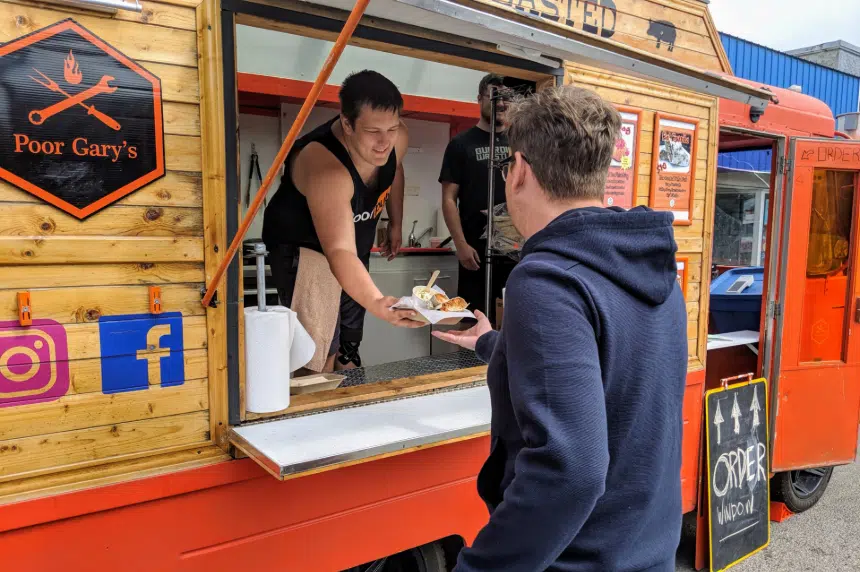Food Truck Wars welcomed thousands of people through its temporary stay in Riversdale this weekend.
One thing not welcome was the waste.
For the second year in a row, the festival strove to be a zero waste event, meaning at least 90 per cent of waste was diverted from the landfill.
As customers chowed down on a variety of street food, Affinity Credit Union’s community advisor Courtney Tait was making sure people were leaving with full bellies, and not with piles of misplaced garbage everywhere.
“We definitely have achieved that this weekend, it’s amazing,” she said during a windy Sunday to close out Food Truck Wars. “Just in one half of our area was like 25 bins — 20 of those were compost, we had four recycling and only two garbage (bins). It’s amazing how much you can actually divert from a landfill.”
Food Truck Wars asked the Saskatchewan Waste Reduction Council to oversee the project while Affinity Credit Union was the title sponsor for the program. The waste initiative was made possible through a partnership between the City of Saskatoon and Saskatchewan Lotteries, which was able to provide $4,250 of funding through an environmental grant.
The next step was ensuring every food truck at the festival was using recyclable or compostable material for every food item. For example, what looked to be a plastic fork or knife was actually made out of corn starch or a sugarcane material.
Not seen at Food Truck Wars was any Styrofoam, tin foil, plastic straws, plastic utensils, plastic stir sticks, or single-use condiment packages.
At three different waste stations throughout Food Truck Wars were volunteers instructing people which item belonged in the corresponding waste bin.
“The greatest part of this is, because we have staff at each of the stations, there’s an educational component to it” Tait said. “Whenever someone goes to put something in a bin, they go: ‘How can this possibly go here?’ And you get to explain it to them that at home you can actually be sorting it this way.
“We’re hoping that will also create awareness in people doing a little bit more to be conserve and be a little bit more zero waste at home, too.”
Tait sees this soon becoming the norm for how summer festivals manage waste across the province. The program is becoming more popular after beginning as a pilot last year. Tait now co-ordinates six different zero waste programs for events this summer, and that number is expected to grow.
“This year, I’ve also had more events come to me saying: ‘I saw you guys! Can you come do this at our event?’ It’s really taking off,” Tait said.











